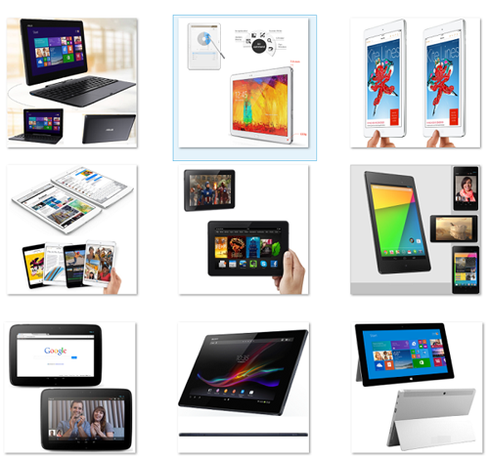Attention Apple Shoppers: iBeacon Is Watching
Bluetooth transmitters will monitor shoppers' in-store movement and make recommendations based on location.


10 Best Tablets Of 2013
10 Best Tablets Of 2013 (click image for larger view)
One of the many features Apple added to iOS 7 is called iBeacon. It relies on Bluetooth transmitters to pinpoint location data more accurately than GPS, which suffers when smartphone users are indoors. Until now, iBeacon has remained dormant. Apple plans to enable the feature within the Apple Store mobile application as well as inside its own retail stores so it can track shoppers and offer them information along the way. Here's how it works.
In order to interact with Apple's in-store iBeacon system, iPhone owners need to download and install the latest version of the Apple Store application. The Bluetooth radio on their device must be on, and they'll need to allow Apple to track their whereabouts through iBeacon. Apple is expected to turn iBeacon on in its 254 US stores sometime Friday, according to the Associated Press. With everything turned on, shoppers are in for a treat -- or an annoyance, depending on your point of view.
Apple demonstrated the technology to AP, which said iBeacon allows Apple stores to send shoppers messages about products, events, and other information that is specific to the user's location. The Apple Store app enters an "in-store" mode once it senses the iBeacon in a particular location. The iBeacon is sensitive enough to tell when a shopper is wandering past a table full of iPads or standing next to the iPhone accessories inside an Apple Store. Further, stores can use iBeacon to let shoppers know that their purchases are available for pickup or where the checkout counter is inside the store.
{image 1}
The Fifth Avenue Apple Store in New York City has 20 iBeacon transmitters. Their sensitivity can be fine-tuned to reach everyone in the store, as well as discern shoppers' exact location to within a few feet. The Fifth Avenue store is quite large, and iBeacon messages might be helpful in such a large space. For some of the smaller Apple Stores, however, receiving messages about the location of the checkout desk, when it is plainly visible from the door, could be irritating. It will be up to each individual store to create its own messages and alerts, and hopefully the stores will be smart about it.
[Have you been in an Apple Store lately? See Apple iPads Beat Early Holiday Expectations.]
Apple says it does not collect data about individual shoppers as they move throughout the store, but iBeacon can enable apps to gather those details. Apple says iBeacon gives apps "a whole new level of micro-location awareness, such as trail markers in a park, exhibits in a museum, or product displays in stores." iBeacon is accessible to app developers that can add it to their own applications. Even then, users will need to agree to be tracked and to provide personal information.
Whether or not individual details are collected, the in-store tracking surely will not sit well with some shoppers. The good news is that it is all opt-in, meaning iPhone owners have control over their location data inside Apple Stores.
What do you think? Is iBeacon the future of mobile shopping, or just another ploy to tempt shoppers with goods they may not need?
Consumerization 1.0 was "We don't need IT." Today we need IT to bridge the gap between consumer and business tech. Also in the Consumerization 2.0 issue of InformationWeek: Stop worrying about the role of the CIO. (Free registration required.)
About the Author
You May Also Like






